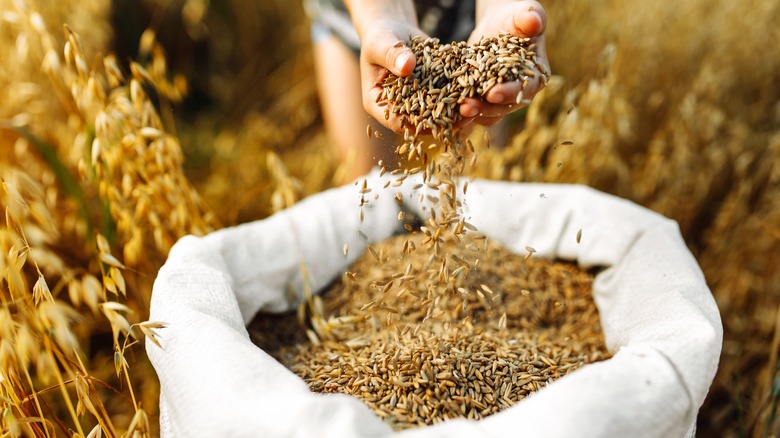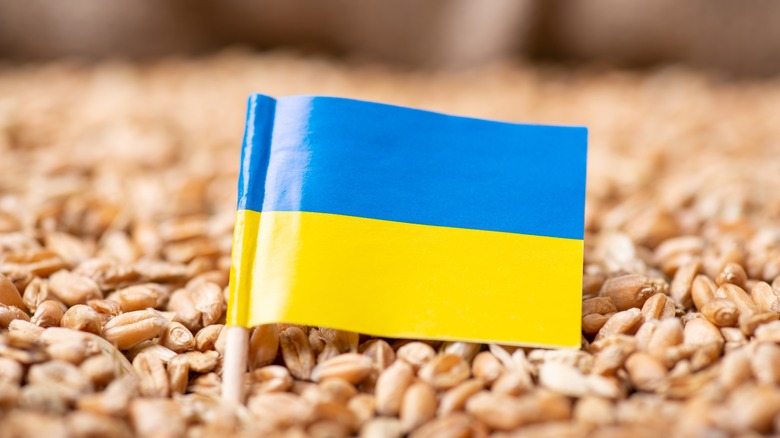Ukraine's New Grain Deal With Russia Might Not Help Food Inflation
Many events have led to creating the current inflation crisis. According to NPR, these events include gas companies increasing their profit margins, a competitive job market, pandemic relief, and Russia's invasion of Ukraine. When it comes to the inflation of grain prices, it's a little easier to pick out the global factor keeping this food's cost high. Per World Grain, Ukraine exported as much as six million tons of grain a month prior to Russia's invasion, but now only exports a million tons a month at the most. The drop in supply has resulted in skyrocketing grain prices.
Although other countries have stepped in to try to meet demand, the world's supply is still very low. However, Ukraine and Russia recently reached an agreement in regard to grain exports. With the UN and Turkey's assistance, Ukraine will export grain using its Black Sea ports (per CNN), and its ships will be checked for weapons upon arrival and departure.
Inflation continues even with Ukraine's grain exports
Ukraine's deal with Russia may seem like a bright light at the end of the food inflation tunnel, but this is not necessarily the case. Grain prices have indeed dropped 5.9% since news of the deal dropped last week, and exports are expected to take the edge off of developing counties (via Market Watch).
But even with this deal, we aren't yet in the clear. According to Foreign Policy, many experts are not convinced that Russia will uphold its end of the agreement. In fact, one of Ukraine's ports was hit with two missiles allegedly fired by Russian troops on July 22, says Al Jazeera, just one day after Russia signed the grain deal. Between damage to Ukrainian ports and Russia's confiscation of most crops, Ukraine's exports remain small. As much as we were all hoping this grain deal would alleviate food costs, hot temperatures are also making food inflation worse, and many countries' grain crops are succumbing to the intense weather.

